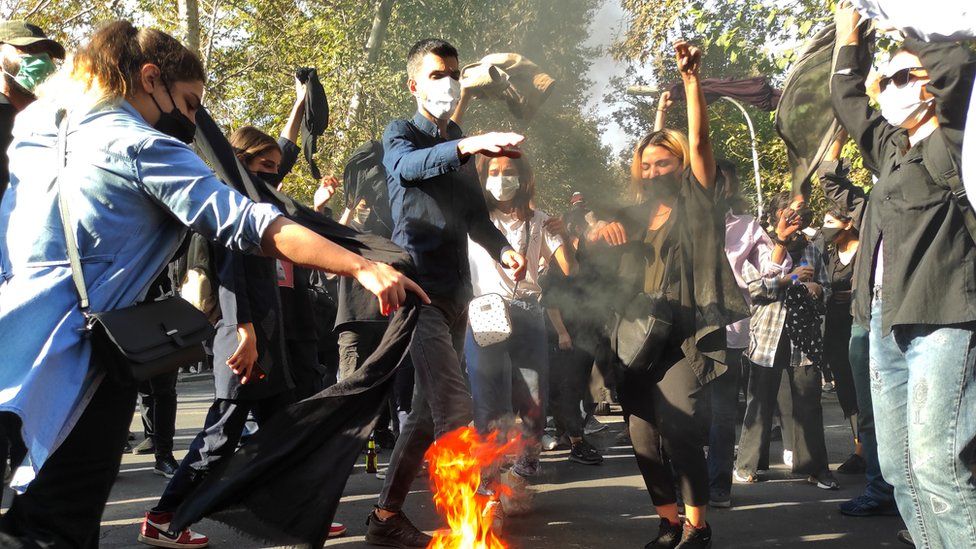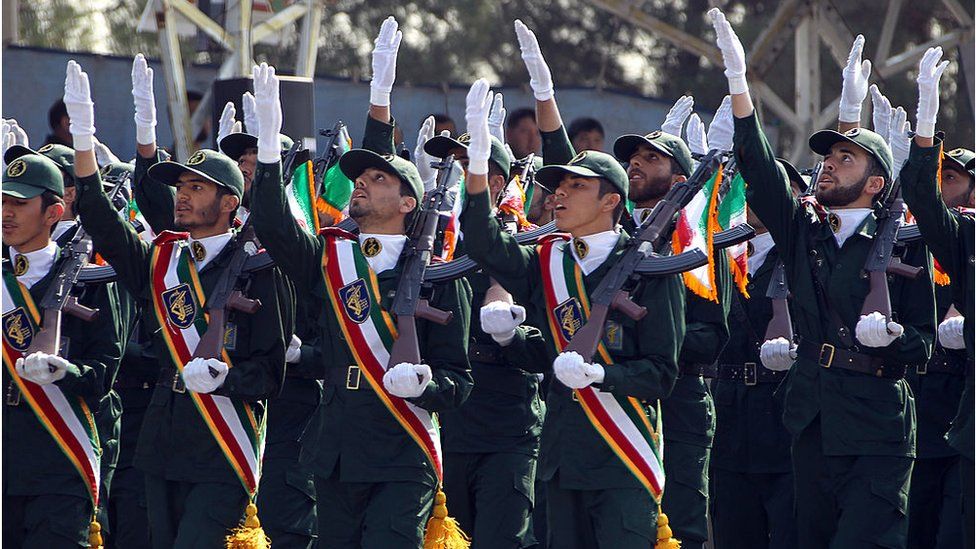UK-Iranian Hunger Striker Vahid Beheshti Vows to Keep Up Action Against IRGC

He hasn’t eaten for more than five weeks and has lost more than 12kg (27lbs). But British Iranian journalist and human rights activist, Vahid Beheshti, says he’s determined to continue his hunger strike to put pressure on the UK government to designate Iran’s powerful Revolutionary Guard Corps (IRGC) as a terrorist group.
“As long as I’m conscious, I’m going to carry on,” he tells me from beside the tent opposite the Foreign Office in Whitehall, where he’s been camped since late February. “Physically, my body is getting weaker and weaker but my mind is getting stronger.”
Earlier this year, Whitehall sources indicated that the government was prepared to proscribe the IRGC, the powerful military force set up after the 1979 revolution in Iran to defend to defend the country’s Islamic system. It exerts huge influence in Iran and, by funding proxies, around the Middle East.
But since then nothing has moved.
Vahid Beheshti – who was arrested in Iran twice before escaping the country 24 years ago – says he’s been buoyed by the support of MPs of all parties as his campaign gains attention, amid growing concerns for his health.
“I know people are worried about me. I’m even getting messages from inside prisons in Iran, but I need to do this,” he says. “The UK government needs to proscribe the IRGC. The only language Iran understands is strength and pressure.”
Richard Ratcliffe, husband of former prisoner Nazanin Zaghari-Ratcliffe, has visited Mr Beheshti three times since he began his hunger strike – in exactly the same spot where he himself refused food for three weeks to put pressure on the government to get his wife home.
“I know how tough what he’s doing is,” Mr Ratcliffe tells me, accusing the UK government of being too soft on Iran over the actions of the IRGC.
“If you signal you’re going to do something and then back off, it’s really problematic,” he says. “The IRGC can smell weakness. The government here has pulled its punches and that’s given them impunity.”
According to MI5, Iran was behind at least 10 potential threats to kidnap or kill British or UK-based people last year alone.
British Iranians, who have taken part in anti-regime protests in the UK, have been threatened and intimidated.
And the Persian-language satellite station, Iran International, has relocated from London to Washington for the safety of its journalists after what it called an “escalation in state-backed threats from Iran.”

Over the past few months, the UK government has imposed escalating sanctions in response to Iran’s brutal crackdown on anti-regime protests sparked by the death of Mahsa Amini, a young woman accused of not wearing her veil properly. They now target individual commanders of the IRGC as well as the Guard Corps as a whole.
A UK government spokesperson told the BBC: “Whilst the government keeps the list of proscribed organisations under review, we do not comment on whether a specific organisation is or is not being considered for proscription.”
But the Home Office and the Foreign Office are said to be at odds over proscribing the IRGC.
“It would send a very loud and strong message,” says Alicia Kearns, chair of Parliament’s Foreign Affairs select Committee. “But there is also a big cost as it could be considered by the Iranians as a hostile act and we would have to close our embassy in Iran.”
That, she tells me, would mean the Foreign Secretary having to tell the families of UK citizens being held hostage in Iran, or arbitrarily detained, that the government was now less able to advocate for their release.

“The Americans have been asking us not to proscribe because they don’t want us to shut our embassy in Tehran which is essentially operating now as their de facto embassy,” Ms Kearns says. “Under Donald Trump they proscribed the IRGC and they feel that it made no difference.”
But Vahid Beheshti says that UK “appeasement” only encourages the IRGC, insisting that he’ll continue his hunger strike until the government labels it a terrorist group.
“I’m very very worried,” says his wife, Mattie Heaven, a Conservative councillor in Coventry. “But I fully support what he is doing. I know why he’s doing it. He’s not doing it for himself. So many people have suffered at the hands of the IRGC.”
Source: BBC





